|
13 Apr
2020 |
SmartResilience final achievements |
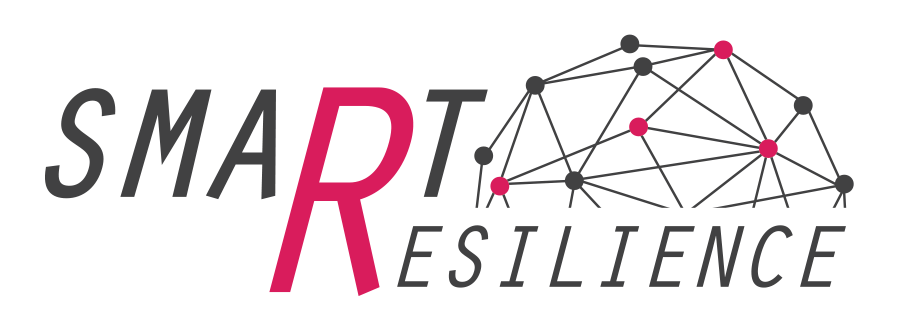 |
The SmartResilience H2020 project, coordinated by EU-VRi, has finished and its main results are released.
|

|
SmartResilience
Smart Resilience Indicators for Smart Critical Infrastructures
|

|
The SmartResilience H2020 project, coordinated by EU-VRi, has finished and its main results are released.
SmartResilience in a nutshell
Modern critical infrastructures are becoming increasingly smarter (e.g. the smart cities). Making the infrastructures smarter usually means making them smarter in the normal operation and use: more adaptive, more intelligent etc. But will these smart critical infrastructures (SCIs) behave smartly and be smartly resilient also when exposed to extreme threats, such as extreme weather disasters or terrorist attacks? If making existing infrastructure smarter is achieved by making it more complex, would it also make it more vulnerable? Would this affect resilience of an SCI as its ability to anticipate, prepare for, adapt and withstand, respond to, and recover? What are the resilience indicators (RIs) which one has to look at?
These are the main questions tackled by the SmartResilience project.
The project answered the above questions in several steps: (1) By identifying existing indicators suitable for assessing resilience of SCIs, (2) By identifying new smart resilience indicators including those from Big Data, (3) By developing, a new advanced resilience assessment methodology based on smart RIs and the resilience indicators cube, including the resilience matrix, (4) By developing the interactive SCI Dashboard tool, and (5) By applying the methodology/tools in 8 case studies, integrated under one virtual, smart-city-like, European case study. The SCIs considered (in 8 European countries!) deal with energy, transportation, health, and water.
Responding to EC Call H2020-DRS-2014-2015: Disaster Resilience: Safeguarding and securing society, including adapting to climate change, the project produced a complete resilience assessment methodology with several accompanying tools, notably the ResilienceTool which supports all of the developed methodology’s features. The methodology and its tools’ good reception made it clear to the consortium that the tool should and could be developed further which actually drove it from the promised RTL4 level (validation in lab) to a fully operational tool at TRL7 (operational prototype) with several real-world cases already implemented within.
Additionally, later in the project, the consortium identified an opportunity to drive the project’s results’ dissemination further and created the new work package (WP9): Ensuring uptake and sustainability of project results which would form the basis for the development of the European Risk and Resilience Assessment agency (ERRA) and that will see the embedding of the project’s results in the new ISO standard 31050: Guidance for managing emerging risks to enhance resilience.
For more information regarding the ResilienceTool, a full user guide is publically available as deliverable D3.7: “The ResilienceTool” of the SmartResilience project on the SmartResilience project’s website.
Main results
The European project SmartResilience has yielded five major break-through results:
|

|
1. Method:
An innovative state-of-the art concept
enabling quantitative assessment of resilience. The concept aims
combines the advantages of approaches oriented towards the
easy-to-understand communication of the assessments results (such as
“resilience very high” or “resilience level red”) with the advantages of
the in-depth assessment approaches, providing many, but often difficult
to understand results (e.g. detailed textual reports from complex
resilience exercises). This main elements of the indicator-based concept
are the “resilience cube” at the top, and the assessment methodology
allowing to (a) assess resilience in a given moment in time and monitor
it over the time, (b) analyze it during a particular adverse effect
scenario, (c) benchmark it, (d) stress-test it, (e) analyze it in a
system of multiple infrastructures and, last but not least, (f) optimize
it a transparent and intuitive way. The concept is public, presented in
publications and presentation and is being summarized in a book under
preparation with the publisher (Springer).
|
|

|
2. Tool:
The concept is applied within a
web-based system, the main elements of which are the resilience
indicator database (over 4,000 indicators available, over 3,000
indicators and almost 1,000 issues), the web-suite of tools (over
20different, combining those pertinent and developed within
SmartResilience project with the “” external” ones) and repository of
the application cases, the later in itself supporting future analyses. |
|

|
3. Applications:
The concept has been practically
applied in 19 case studies in which over 300 different resilience
assessments were made, about 30% of those made for the stakeholders
outside the project (e.g. in other DRS EU projects or the institutions
supporting the partners in the projects – e.g. ministries). The concept
has been discussed and agreed with over 50 different organizational
stakeholders, setup at 7 external-to-the-project “MySmartResilience”
sub-sites. |
|

|
4. Standard:
The project results, at the end of the project, are being
embedded into the new ISO 31050 standard currently under development.
|
|

|
5. Beyond-the-project use:
The “life-after-the-project” of the project results will be practically ensured by the dedicated “resilience rating agency”, the creation of which is initiated at the end of the project (ensuring free-of-charge use after the project), and the educational platform running under the umbrella of the site of one of the academic partners in project.
www.erra.eu-vri.eu |
The TRL (technology readiness level) envisaged at the start of the project to be TRL4, has been over-achieved (approx. TRL5-TRL6). The main results of the projects are already used in the follow-up EU projects and other initiatives.
Duration: 36 Months / Partners: 20 / Programme: Research and Innovation Action in H2020 / Budget-EC Grant: approx. 5-9 Million Euro
http://www.smartresilience.eu-vri.eu |
|
|
|
|
|
06 May
2019 |
Highlights from the Joint Final Conference of SmartResilience and SAYSO |
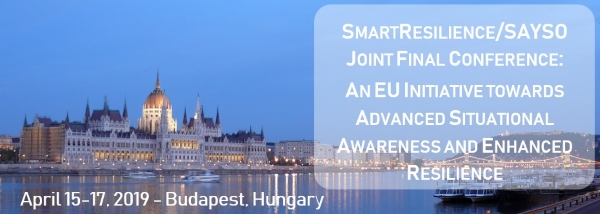 |
From Monday, April 15, 2019, through Wednesday, April 17, 2019, the SmartResilience team was pleased to collaborate with fellow EU Horizon 2020 project SAYSO in hosting their projects' Joint Final Conference in Budapest, Hungary, at the Hungarian Academy of Sciences, Institution for Social Sciences.
The conference, entitled An EU Intiative Towards Advanced Situational Awareness and Enhanced Resilience, involved more than 90 practitioners, developers, technology suppliers, and standardization and procurement specialists, as well as decision-makers, from over 20 different countries. These individuals gathered to share results and collaborate toward finding the best ways to harmonize, integrate, and enhance the projects’ outcomes in order to achieve tangible impact at the European level.
The three-day program included both integrated and project-specific sections to discuss not only the results achieved in the projects but also how their legacies will continue into lasting future impacts. The conference presented a unique opportunity to share experiences in areas including resilience and risk governance, situational awareness systems, cross-border issues, communication, and analysis and management, both among already involved and newly-engaged project stakeholders and experts. As co-conference organizers, we want to thank all those who attended and assisted with the preparation and execution of this impactful event and look forward to future collaborations.
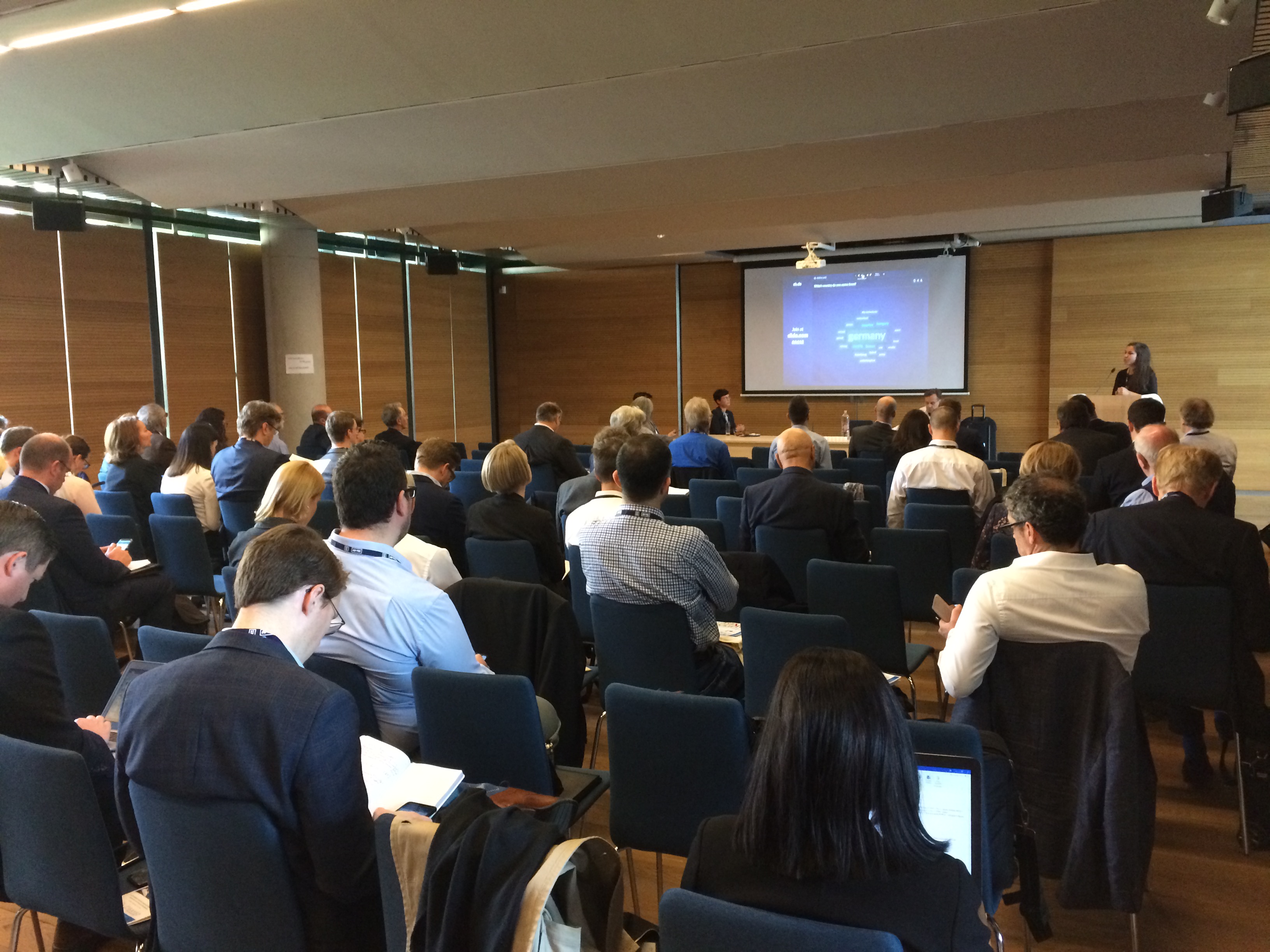
Above: Attendees being introduced to using the interactive audience feedback tool Slido
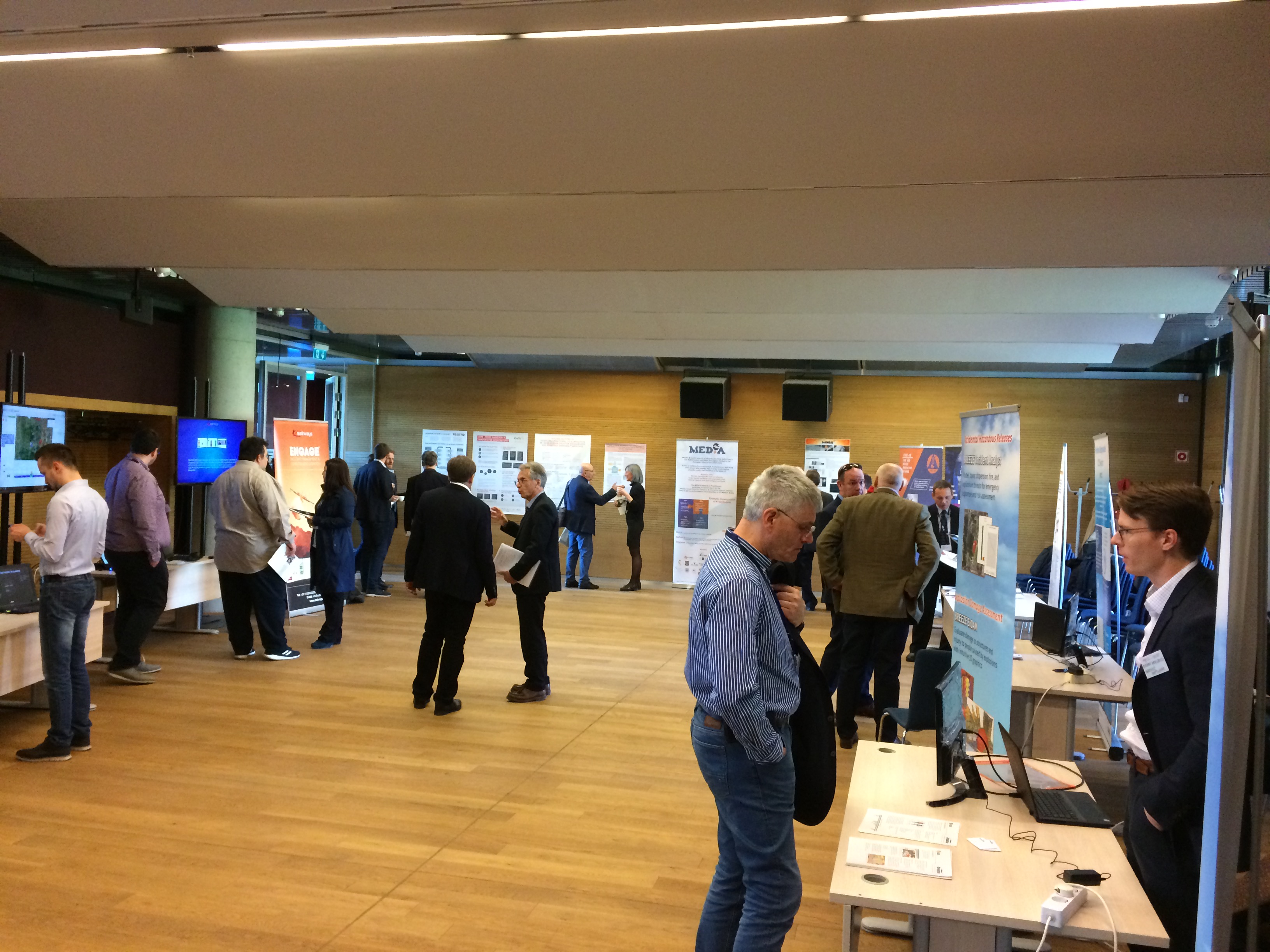
Above: The conference's Poster and Tradeshow session featured posters and information from multiple EU projects, researchers, and suppliers, as well as short courses related to the SmartResilience tool and educational platform |
|
|
|
|
|
04 Apr
2019 |
Prof. Jovanović featured on panel at OECD workshop on Good Governance for Critical Infrastructure Resilience and Security (April 5, 2019, USA) |
 |
Prof. Aleksandar Jovanović will be a featured panelist at the OECD High Level Risk Forum workshop on Good Governance for Critical Infrastructure Resilience and Security, being held on April 5, 2019, in Washington, D.C. (United States). His panel will part of the seminar's Session 3 on "Mapping interdependencies between critical infrastructure sectors and assessing systemic risk."
|
|
|
|
|
|
05 Mar
2019 |
European Commission Directorate General for Environment seeks input on multiple Directives |
 |
The Directorate General for Environment of the European Commission is currently performing an evaluation (aka Fitness Check) of multiple Directives to assess whether the current regulatory framework is "fit for purpose."
|
|
|
|
|
|
22 Feb
2019 |
Register now for the Joint Final Conference of SmartResilience and SAYSO projects! |
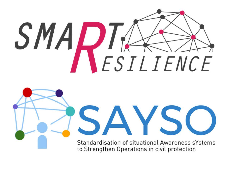 |
The SmartResilience and SAYSO H2020 projects are excited to announce their Joint Final Conference entitled "An EU Initiative Towards Advanced Situational and Enhanced Resilience." The conference will take place from April 15-17, 2019, in Budapest, Hungary.
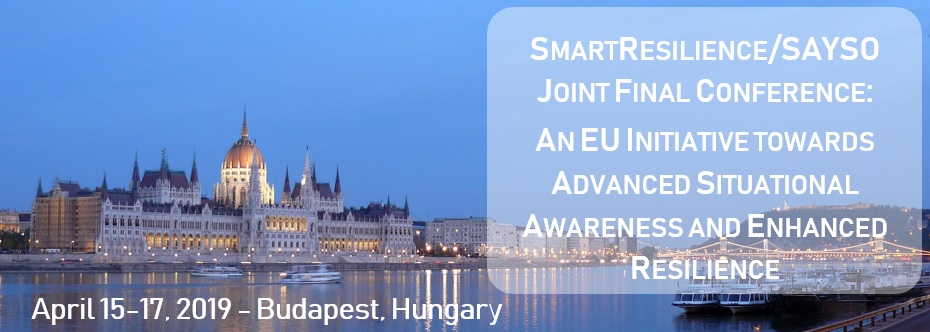
Event Details
The joint final conference of the SmartResilience and SAYSO projects will be hosted by the National University of Public Service in Budapest. The objectives of the joint conference are to present and discuss their respective outcomes as well as to discuss next steps. The conference will involve practitioners, developers, technology suppliers, and standardization and procurement specialists, as well as decision-makers, to find the best ways to harmonize, integrate, and enhance the projects’ outcomes in order to achieve tangible impact at the European level.
Registration
- Registration Fee: None (includes lunch and coffee breaks during the conference)
- Additional Costs: Conference participants are responsible for covering their own travel, lodging, and associated costs.
Call for contributions/presentations
The SmartResilience and SAYSO projects are seeking contributions/presentations related to critical infrastructure resilience and protection and to situational awareness systems in civil protection.
Proposals for contributions, including title, authors' names, and a short abstract (max. 1500 characters) should be sent to SAYSO-SmartResilience-Conference@eu-vri.eu using the application form available for download below.
Deadline: March 7, 2019
Accepted Notification: March 2019
*Please Note: Contributors/presenters should also register for the days of the conference which they will be attending!
Call for posters
Poster presentations will be displayed during a 90-minute poster session with the attendant author(s) available to discuss and present the poster (e.g. from EU or other projects). These will be scheduled on the afternoon of Monday, April 15, 2019.
Deadline: March 7, 2019
Accepted Notification: March 2019
*Please Note: Poster presenters should also register for the days of the conference which they will be attending!
Conference program
The final program is available for download here.
The projects
 The SmartResilience project provides a new indicator-based methodology for assessing and measuring the resilience level of critical infrastructures, such as energy and water supply, transportation networks and similar. The SmartResilience project provides a new indicator-based methodology for assessing and measuring the resilience level of critical infrastructures, such as energy and water supply, transportation networks and similar.
The SAYSO project aims to allow European civil protection and emergency responder organisations to procure, at a competitive price, innovative Situational Awareness systems and tools matching their needs. The production of the specifications of such solutions in SAYSO also involves suppliers, public procurement authorities and policy makers.
Access map
For information on how to reach the venue, click HERE.
Lodging
The conference organizing committee is not recommending any specific hotels for conference attendees, as we have decided this is best left to the personal tastes and preferences of each participant. However, there are many good options available near the venue, and any hotel in or near the city center should also be close to either a direct or connecting public transit line with a stop close to the conference center.
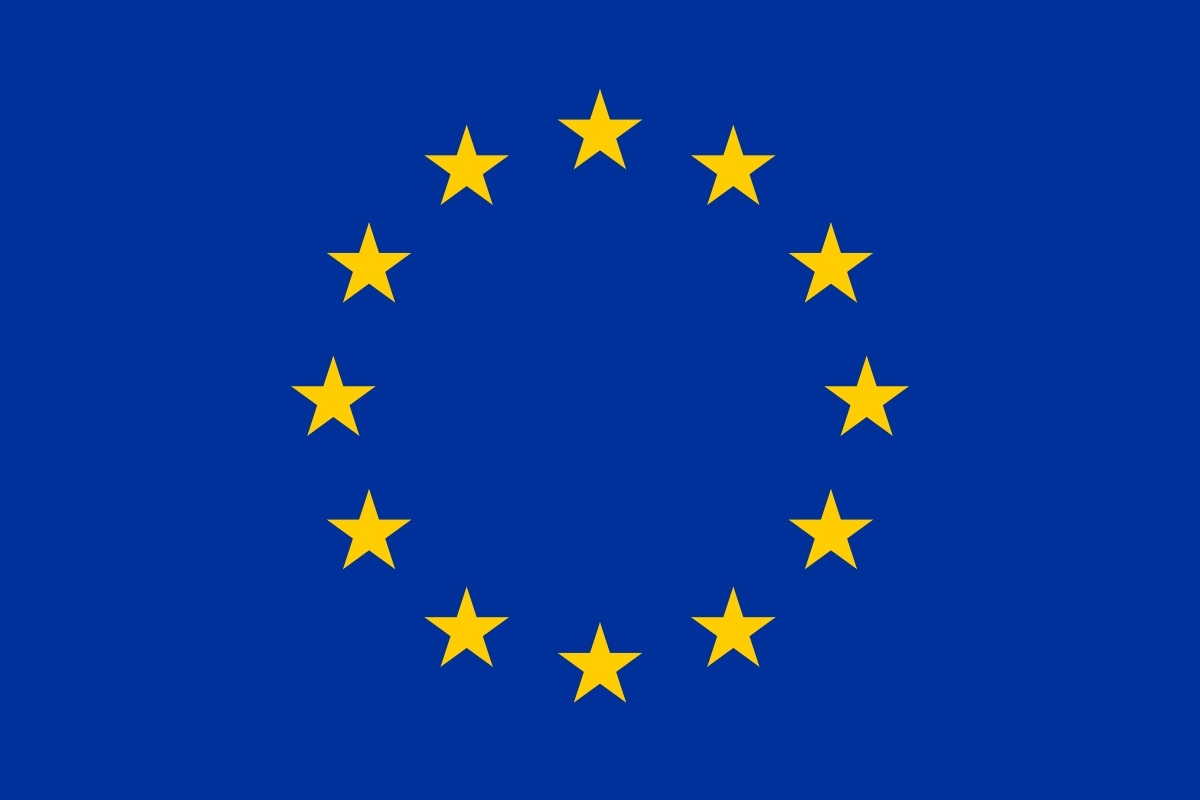 The SmartResilience and SAYSO projects have received funding from the European Union’s Horizon 2020 Research and Innovation Programme, under the Grant Agreement Numbers 700621 and 740872, respectively. The support provided by the European Commission for these projects and for their joint final conference is acknowledged and greatly appreciated. The SmartResilience and SAYSO projects have received funding from the European Union’s Horizon 2020 Research and Innovation Programme, under the Grant Agreement Numbers 700621 and 740872, respectively. The support provided by the European Commission for these projects and for their joint final conference is acknowledged and greatly appreciated.
|
|
|
|
|
|
28 Jan
2019 |
SmartResilience referenced as part of the new ISO 31050 standard |
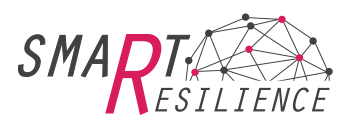 |
SmartResilience is referenced in a recent update to an International Organization for Standardization (ISO) webpage highlighting the work being done for the new standard ISO 31050 - Guidance for managing emerging risks to enhance resilience. The standard and will provide the guidance needed to deal with the "new, previously unknown or not considered, 'emerging' risks [which] can pose the greatest challenges to resilience, safety and operational and business continuity" and draws upon the work of organizations and projects including SmartResilience.
This standard is currently under development by ISO/TC (Technical Committee) 262 ‘Risk Management,’ which "develops international standards in the field of risk management to support organizations in all their activities including making decisions to manage and minimize the effects of accidents, disasters and faults in technical systems as well as response and recovery from major disruptive risks."
To learn more about the new ISO 31050 standard, visit: https://committee.iso.org/sites/tc262/home/projects/ongoing/iso-31022-guidelines-for-impl-2.html |
|
|
|
|
|
07 Jan
2019 |
SmartResilience article in Safety Science journal |
 |
The SmartResilience project is highlighted in the recently released Safety Science journal article "Quantitative resilience assessment in emergency response reveals how organizations trade efficiency for redundancy." SmartResilience Project Coordinator Prof. Dr. Aleksandar Jovanović is one of the article's co-authors.
The authors note that their "results open the obvious possibilities for optimization along several lines that could be explored in future research," including comparison of "'big-data-based indicators'...This option would open up a completely new way of looking onto the monitoring of resilience in real time, which was exactly the idea promoted by the SmartResilience project."
Read the full article at: https://www.sciencedirect.com/science/article/pii/S0925753518312013
|
|
|
|
|
|
20 Dec
2018 |
SmartResilience project announces joint final conference with SAYSO H2020 Project |
 |
The SmartResilience project is excited to announce it will be hosting its final conference in joint collaboration with the SAYSO Horizon 2020 Project from April 15-17, 2019, in Budapest, Hungary. Registration will open in early 2019. More information is available in the "save the date" invitation below.
Invitation for the Joint Final Conference
of the SmartResilience and SAYSO H2020 projects
April 15-17, 2019
Budapest, Hungary
The joint final conference of the SAYSO and SmartResilience projects will be hosted by the National University of Public Service in Budapest on April 15-17, 2019. The objectives of the joint conference are to present and discuss their respective outcomes as well as to discuss next steps! The conference will involve practitioners, developers, technology suppliers, standardisation and procurement specialists, as well as decision-makers to find the best ways to harmonise, integrate, and enhance the projects’ outcomes and achieve tangible impact at the European level.
If you wish to participate as a speaker, please contact us before January 31, 2019, at SAYSO-SmartResilience-Conference@eu-vri.eu.
The e-registration for all participants will open early 2019.
To be among the first informed, follow us on Twitter!
@SmartResilience and @SAYSO
Contributors and participants from other projects and institutions are welcome to attend.
We look forward to welcoming you in Budapest!
Kind regards,
A. Jovanovic & H. Burkow
on behalf of the SmartResilience and SAYSO Consortia

|
|
|
|
|
|
11 Dec
2018 |
SmartResilience public deliverables D3.6 and D4.4 now available |
 |
The SmartResilience project recently published two more public deliverables in the Results section of its public-facing website.
These newly posted deliverables are:
|
|
|
|
|
|
27 Nov
2018 |
SmartResilience project team to participate in upcoming international events |
 |
The SmartResilience team will be attending and participating in several upcoming international events for promotion and dissemination of the project.
These events include:
 December 2-6, 2018: December 2-6, 2018:
Society for Risk Analysis (SRA) Annual Meeting, New Orleans, LA (USA) – Professor Jovanović will be sharing the following presentation related to SmartResilience:
Analyzing Interdependencies Among Infrastructures Based on Big Data and Resilience Indicators (Jovanovic AS, Klimek P)
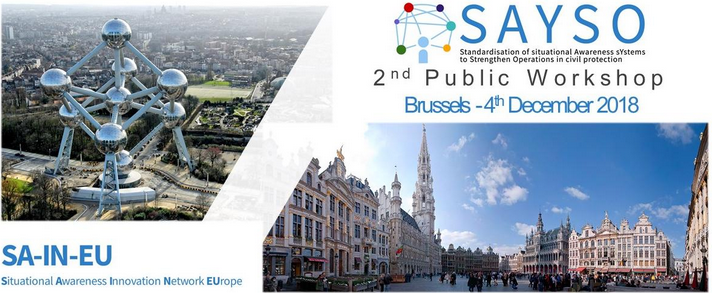
December 4, 2018:
Second Project SAYSO Public Workshop, Brussels, Belgium
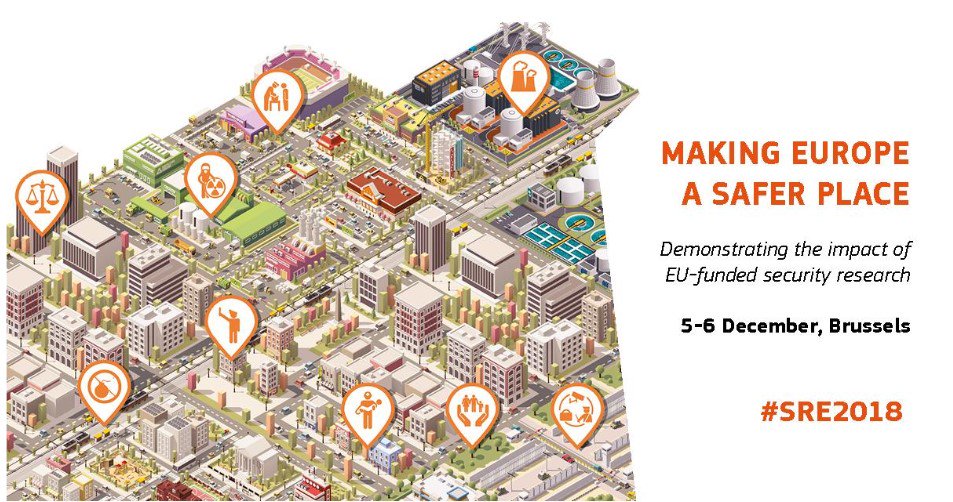
December 5-6, 2018:
Security Research Event (SRE) 2018, Brussels, Belgium |
|
|
|
|
|
26 Nov
2018 |
SmartResilience project: Web updates |
 |
The SmartResilience project is excited to share several recent updates related to its web tools, including the launch of the MySmartResilience and updates to the Welcome web page of the tool.
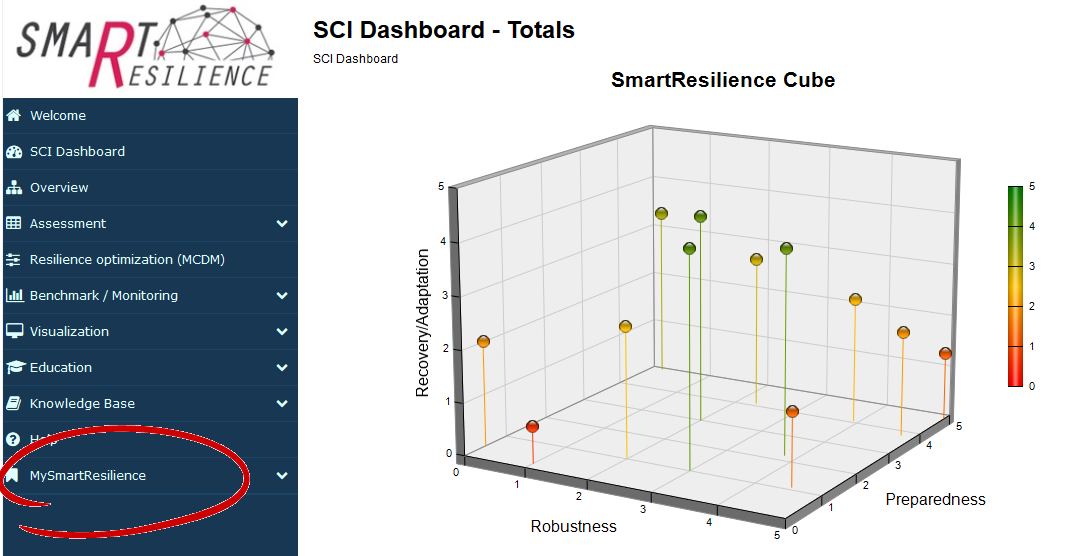
MySmartResilience Tool
A recent update to the SmartResilience web interface includes a new section of the tool called MySmartResilience that enables personalized data entry, analysis, and saving.
Project stakeholders should contact smartresilience-core@eu-vri.eu to gain access to this section of the tool.

SmartResilience Welcome Web Page Updates
Two recent updates have been made to the Welcome web page of the SmartResilience tool:
1. Testimonials have been added to share end-user and project participant experiences with and impressions of SmartResilience.
2. A Feedback Survey is now available via the “Tell us your opinion” button and directly via this link: http://www.smartresilience2.eu-vri.eu/Survey_Run.aspx?ID=978. We ask that interested parties please help us by taking some time (estimated 10-15 minutes) to complete this survey to help us improve the SmartResilience tool and potential applications. This survey can be distributed to anyone who may be interested in providing feedback. There is also an opportunity included in this survey to provide a testimonial for the project.
|
|
|
|
|
|
23 Nov
2018 |
SmartResilience highlighted on WaterBriefing website |
|
|
|
|
|
|
30 Oct
2018 |
Prof. Jovanović interviewed regarding risk standardization |
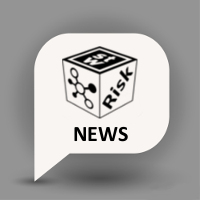 |
Prof. Aleksandar Jovanović recently gave an interview for the leading German economic newspaper Wirtschaftswoche, recognizing the importance of standardization work in the area of risks. EU-VRi, Steinbeis, and Prof. Jovanović are long-time active leaders in the area of standardization related to emerging risks, currently working on a new ISO standard, ISO 31050 Guidance for Managing Emerging Risks to Enhance Resilience.
The original article is available in German here: http://www.inpactmedia.com/wirtschaft/risikomanagement/wir-brauchen-standards-fuer-globale-risiken#2287. A translated version in English is provided below:
»We need standards for global risks«
Globalization is driving forward world networking. But with complexity also comes risks. How can you correctly assess a threat situation? Are we even worried about the "right" things?
Klaus Lüber, Editorial Staff
And how can you handle risks that have global implications? An interview with Prof. Aleksandar Jovanović, Head of the European Virtual Institute for Integrated Risk Management (EU-VRi).
KL: Mr. Jovanović: natural disasters, infrastructure damage, political imponderables, supply chain disruption, piracy, sabotage, cybercrime - the number of risks in international business seems to be growing. Is that really the case, or is it just because we know more and more about risks?
AJ: That's not so easy to answer. What does "growing" mean? What we do know is that the present has become more complex and often entails new risks. As a system becomes more complex, in general, the risks become more complex, and the number of potential and new risks increases. The problem is that in order to really assess a threat situation, we need reliable reference points. At the “regulars” table you can talk about the real dangers of climate change at length, but as long as you do not have a reliable framework to define priorities, criteria and decision-making processes (when it comes to risk assessment) all remain just a roundtable discussion.
KL: You could consult experts.
AJ: Yes, of course you could, and of course you do, but that does not really make you “pass.” For example, if every expert has a different opinion, we get a collection of responses in silos. This is a very unfavorable situation, especially when dealing with complex risks, because here [with complex risks] it is particularly important to act interdisciplinary and to see the "big picture."
KL: Do you mean [to imply] action guidelines for companies and institutions?
AJ: Right, and here comes the next challenge: the classification of responsibilities - "mandates" - has also become more complex. As a result, it is often the very institutions that are supposed to exercise these mandates globally, such as the UN or the EU, which become increasingly powerless or unfree in doing so. At the national level, it is often not much better. Although consensus on dealing with complex and systemic risks is certainly very important, as well as [achieving] the acceptance of as many people as possible, the reluctance of an institution [to act], such as a competent ministry which actually has power to act on an issue such as “coal exit,” is out of place.
KL: What is the general policy in the area of risk management?
AJ: In my opinion, there is definitely room for improvement. Many authorities and institutions have long lost much of their expertise and have many specialist personnel issues. Take the cybercrime field: since it is often impossible for authorities to engage the right IT professionals to provide the TVL-like conditions, many “cybersecurity centers” lack the right professionals or expertise.
KL: What about the situation with companies? Do they usually have more financial leeway?
AJ: That's right, but they have the problem of having to decide whether to invest long-term or short-term. For example, insurers who have been dealing with risk management issues for years often have to balance the investments they have in short or long-term risks because they cannot always afford the required research on the long-term, more complex risks. As in politics, they are simply less and less interested in long-term planning. It's worth less or even nothing at all.
KL: Let’s speak [more] concretely about the risks that we are dealing with in business and society. The sociologist and risk researcher Ortwin Renn, with whom you have worked for many years, sees the greatest danger in so-called systemic risks.
AJ: Yes, Mr. Renn means risks that can have global implications, are closely networked with many functional areas of the economy and society, and have cause-and-effect chains where we cannot get by with a classic, statistic-based approach. Here we need a fundamental change of perspective.
KL: What do you mean?
AJ: One should say goodbye to the idea that one could simply avoid or combat systemic risks like an external disturbance. The truth is that it is no longer about avoiding risks but understanding them as best as possible and preparing for them in the best possible way [in order] to ensure the resilience of the systems. That's one thing. The other is that solving complex and global problems usually has to be complex and global. Global also in the sense of "integrative" and "integrated".
KL: You have to explain that, please.
AJ: The decisive factor is the integration of various solutions into integrated risk management. That is exactly what we are doing at the EU-VRi, [the Virtual] European Institute for Integrated Risk Management. In doing so, one must try to consider all the different sources, including those, for example, that can cause or promote the misperception of risks in social networks. Nowadays, you have to be able to analyze the large amounts of data available – “Big Data” -, to be able to analyze new methods and have new analysis software. This is the only way to detect new trends in risks in good time: by observing them in real time and to derive recommendations for action from them. It is very useful to compare these results, which you can get without experts, with expert opinions.
KL: So risk analysis tools alone are not enough [to avoid risks]?
AJ: No, because even with these tools you will hardly be able to avoid them; new solutions also generate new risks. A classic example is the risk of Alzheimer's disease. That [risk] is one in a hundred at the age of 65 but one in six at the age of 85. One could say: by avoiding the risks that lead to an early death, at the same tome you increase the risk of developing [other] diseases that increase [in risk] with age. That this pattern is repeated in other fields, such as the exit from coal, autonomous driving, or Industry 4.0, is to be expected.
KL: These are topics in each of which the aspect of social acceptance plays a role. Now many of your colleagues say that we often cannot assess risks properly. Isn’t it first of all a matter of distinguishing "real" from "fake" risks?
AJ: Of course you can do that, but you should be careful not to take so-called "false" risks less seriously. For a long time, insurers have had their own term: phantom risks. Although they have no material, statistical basis, they should still play an important role in a risk analysis. To perform a full risk analysis, one must consider factors such as risk perception and social acceptance. If technology is accepted in one corner of the world and not in another, it is important to understand why.
KL: Like, for example, the Transrapid?
Exactly. A cutting-edge technology that has not found social acceptance. Not least of all because the risks associated with the Transrapid in Germany and the classic train have been considered and categorized. Then it would be, as in every train, an emergency brake would be required on the Transrapid, while nobody would think of installing one in an airplane.
KL: What recommendations do you give to politics and business?
AJ: It's all about recognizing the importance of frameworks for efficient risk management. Just as we have agreed in many countries to drive to the right or measure speed in km/h, we also need more commonly accepted risk and resilience management standards in risk research - such as the new ISO 31050. That's because we need maximum clarity and the above framework in the implementation. Only then will we have a chance to prepare efficiently for the challenges of old and new risks. |
|
|
|
|
|
13 Sep
2018 |
SmartResilience Selection of CORE DCL ISSUES & INDIA Workshop in Brussels |
 |
SmartResilience Project Partners met in Brussels on September 11-12, 2018, in order to discuss the CORE list of issues and the INDIA case study. On the first day, Prof. Jovanović introduced the concept of the CORE dynamic checklist (DCL) and presented the SmartResilience tool. During this day, the workshop participants also reviewed the issues and finalized the CORE DCL. On the second day, a tabletop exercise was conducted to simulate cascading and ripple effects on combined scenarios (CASE STUDY INDIA). |
|
|
|
|
|
30 May
2018 |
SmartResilience Open Workshop and CIRAB Meeting |
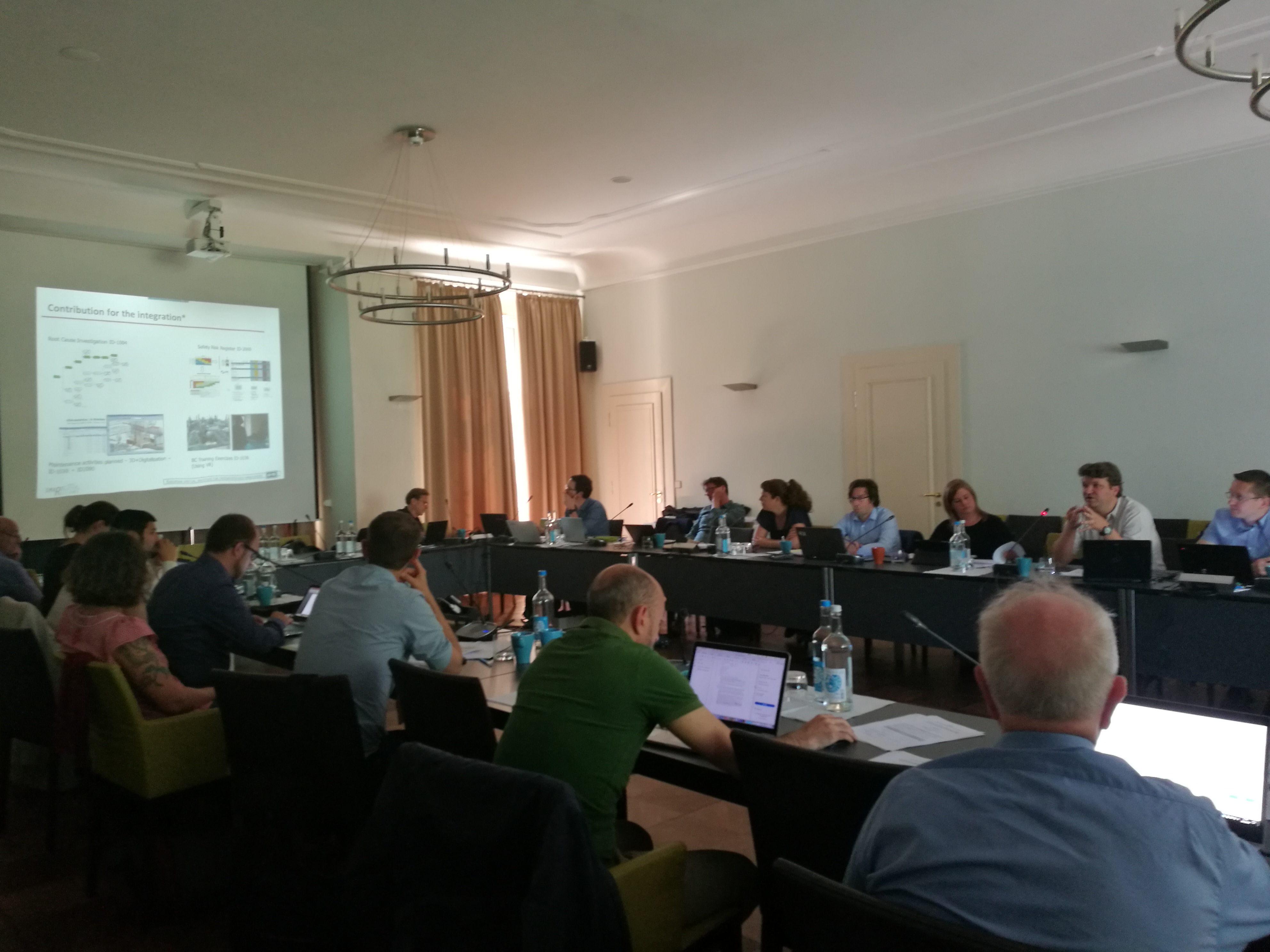 |
SmartResilience Project partners, members of Critical Infrastructure Resilience Advisory Board, insurance experts, and representatives of different research institutes, as well as end-users, met in Potsdam on May 29, 2018, in order to discuss the progress of the work done in the project and align the further actions needed for the remaining 11 months of the project.
Around 40 participants from all over the world (China, USA, France, etc.) gathered together in the premises of Institute for Advanced Sustainability Studies in Potsdam. During the 1-day workshop, the most tangible results of the work done in the project were presented. Project partners higlighted the specific issues tackled by their case studies, showing the indicators which they have selected for the assessment as well as their contribution to the integrated network/tool developed within SmartResilience. Furthermore, application of SR Tool on other EU DRS project has been presented by dr Emanuelle Bellini, coordinator of RESOLUTE.
In the second part of the meeting, Frederic Petit from Argonne National Laboratory presented the need to promote a global approach to resilience.
At the end, the Chair of Critical Infrastructure Resilience Advisory Board, Prof. Claudio Rolandi, and coordinator of the project, Prof. Aleksandar Jovanović led a fruitful panel discussion about the challenges related to resilience management, perspectives on enterprise resilience, and engagement of relevant politicians.
|
|
|
|
|
|
05 Apr
2018 |
SmartResilience Newsletter - 3rd issue |
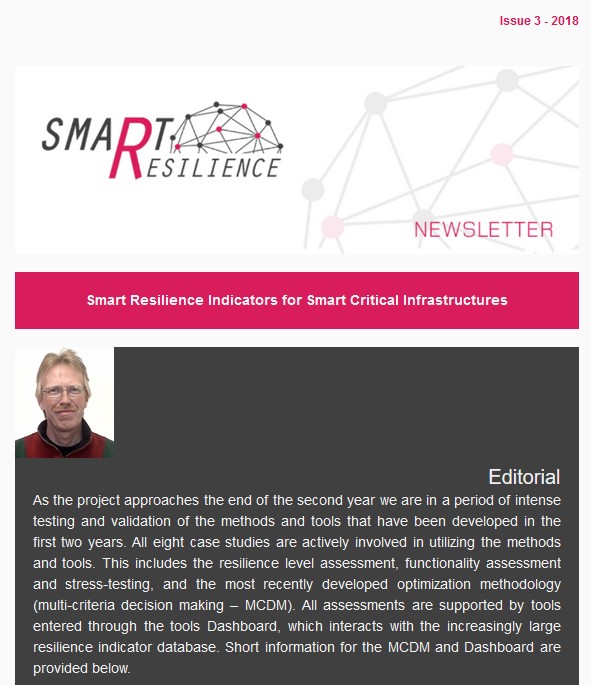 |
Approaching the end of its second year, SmartResilience has released its 3rd newsletter!
Approaching the end of its second year, SmartResilience has released its 3rd newsletter!
| This newsletter gives some hints about the project progress and results
as well as information about the use of big data in the project, and the
short information for MCDM & Dashboard. |
|
 |
|
|
|
|
|
|
19 Mar
2018 |
MoU with ANL on resilience of critical infrastructures |
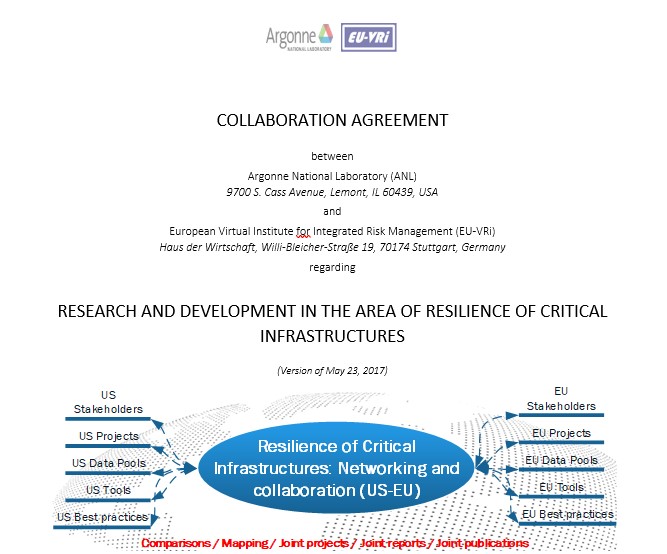 |
EU-VRi and Argonne National Laboratory (US) sign a MoU in the field of resilience of critical infrastructures !
Early 2018, the European Virtual Institute for Integrated Risk Management (EU-VRi) and Argonne National Laboratory (ANL) have signed a Memorandum of Understanding with the aim of strengthening their collaboration in the field of resilience of critical infrastructures.
Argonne National Laboratory is a science and engineering research national laboratory operated by the University of Chicago Argonne LLC for the United States Department of Energy.

This new collaboration aims to develop the mechanisms and processes to promote research, academic exchange and cooperation for the mutual goal of improving safety, security and sustainability aspects of resilience of critical infrastructures. This exchange of information will include resilience related indicators, assessment methods, tools, auditing for the improvement of protection of critical infrastructures. |
|
|
|
|
|
08 Mar
2018 |
Do you want to know more about the SmartResilience Project results? Check the latest news |
 |
The quintessence of the Resilience Assessment Methodology in the SmartResilience project is presented here!
The SmartResilience project provides a new methodology for assessing and managing resilience of critical infrastructures, such as energy and water supply, transportation networks and similar. The term “resilience” of an infrastructure, describes its ability to cope with possible adverse scenarios/events that can potentially lead to significant disruptions in its operation/functionality. Examples of scenarios are, for instance, terrorist attacks stopping airport operation or cyber-attacks destroying the financial systems. Coping with these scenarios means preparing for them, being able to absorb/withstand their impacts, recovering optimally from their impacts and adapting to the continuously changing conditions. In practice, an end-user essentially wants to know answers to the questions below, flowing the resilience assessment workflow.
Presented is ''10 sentences for end-users". In order to display it, please click on the picture below.
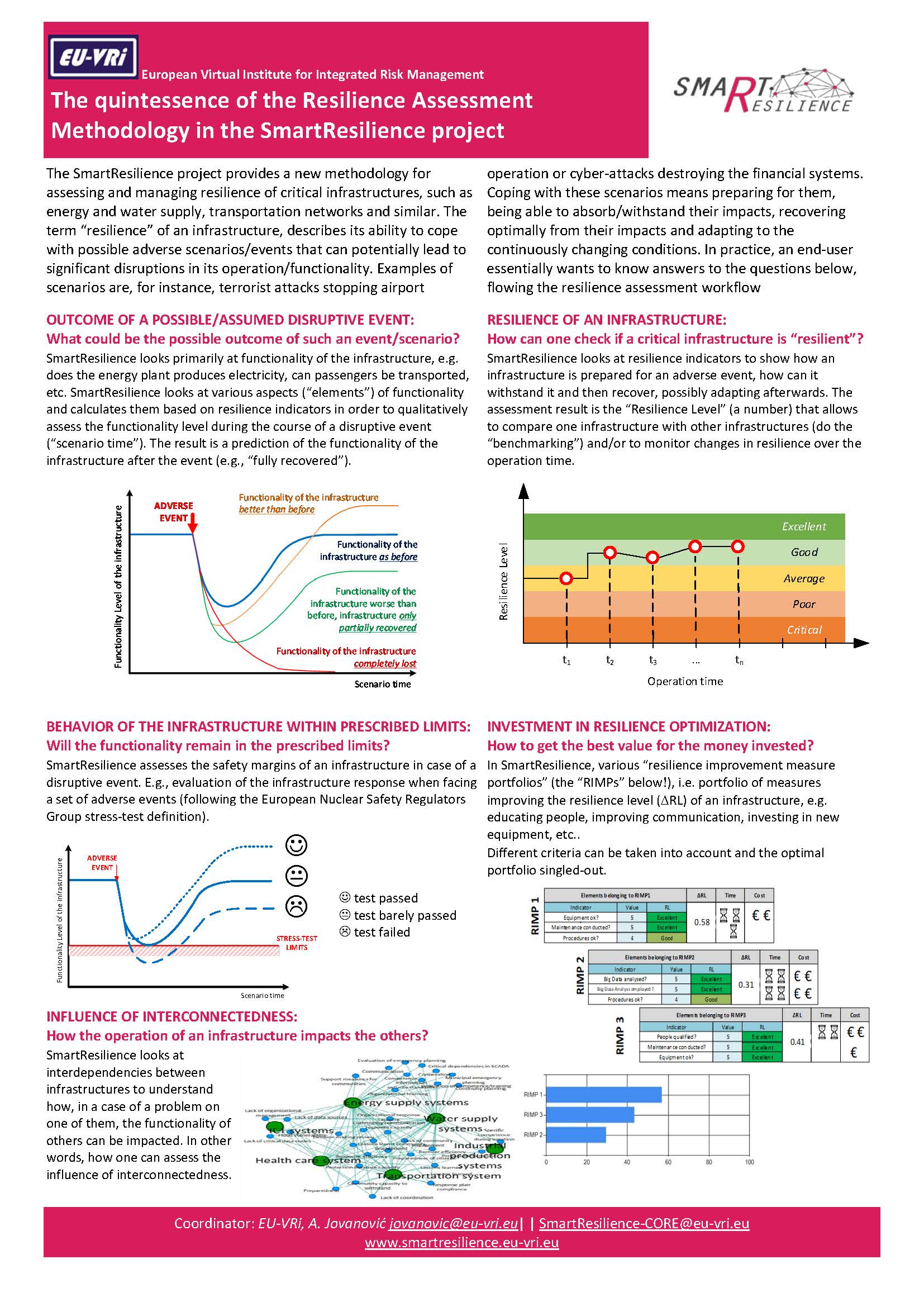
More elaborated version (.pptx presentation) showing the tangible results of the work done so far in the project can be accessed here:
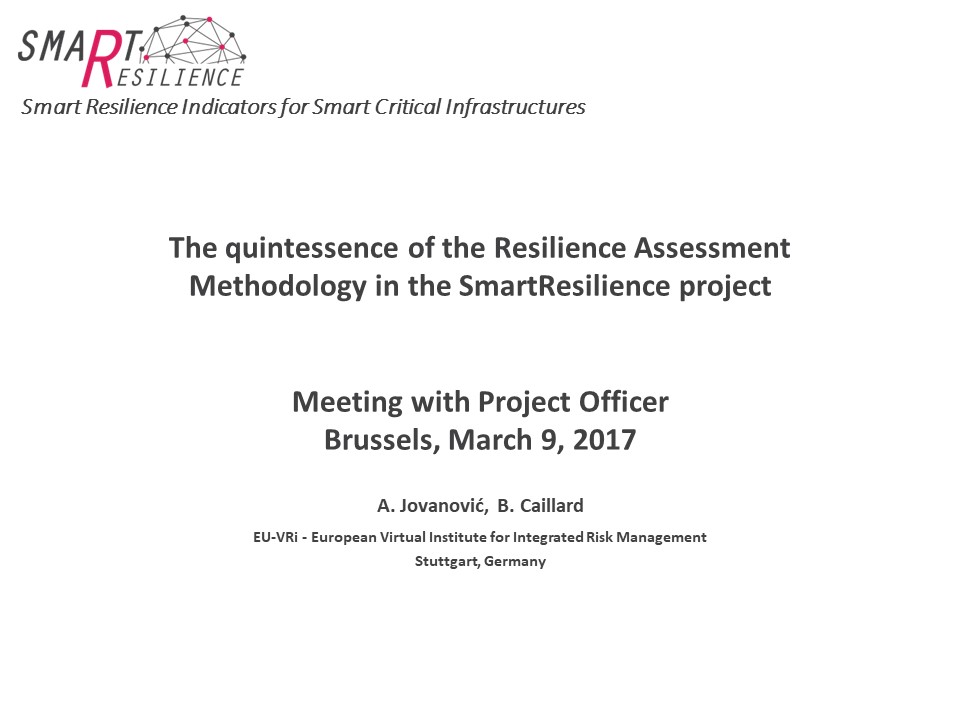
NOTE: When you click on the picture above, presentation will be downloaded automatically.
|
|
|
|
|
|
24 Jan
2018 |
Prof. Dr. A. Jovanovic presented the lecture: “Fooled by (past) resilience: Why do we overestimate resilience of our critical infrastructures” at University of Wuppertal (BUW). |
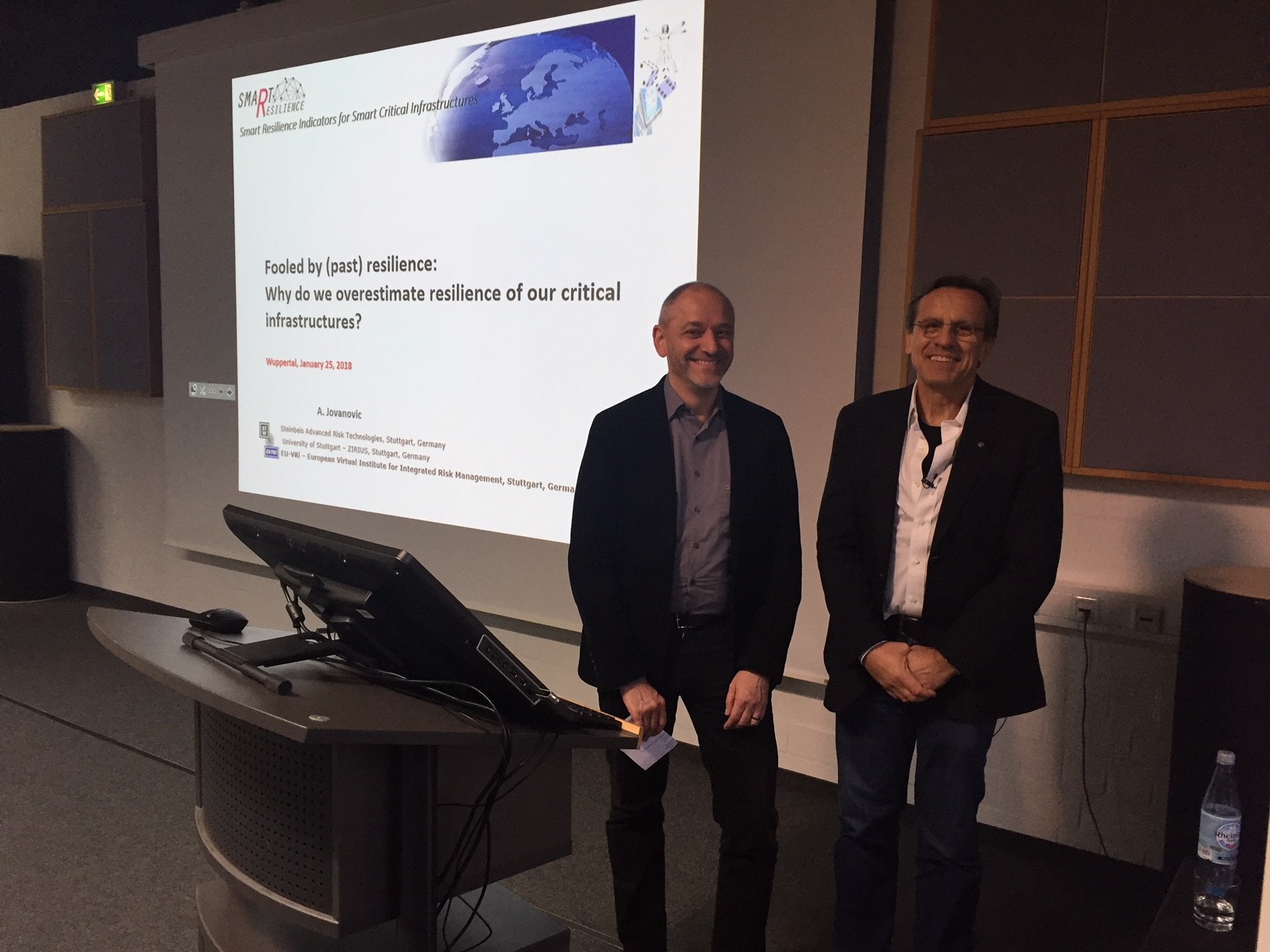 |
Mr. Jovanovic was invited as guest lecturer for the public safety lecture series at BUW. His presentation focused on the state of the art knowledge about resilience quantification developed within the SmartResilience project. The Horizon 2020 research project is elaborating a new advanced resilience assessment methodology in order to measure and increase resilience of smart critical infrastructures (SCIs) within Europe and around the world. The lecture is available on Youtube (for the BUW channel see Here) and Facebook. |
|
|
|
|
|
07 Jun
2017 |
First Review meeting taking place in Brussels on June 8, 2017! |
 |
First Review meeting will be taking place in Brussels on June 8, 2017. |
|
|
|
|
|
|
|